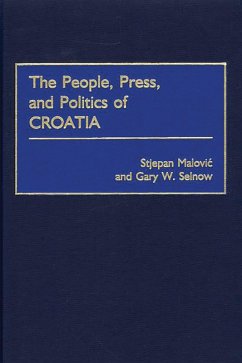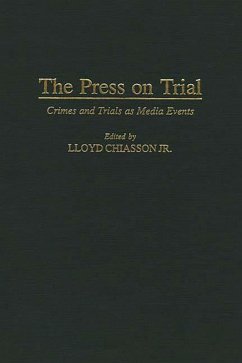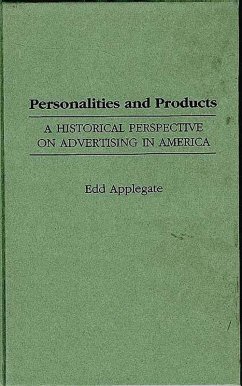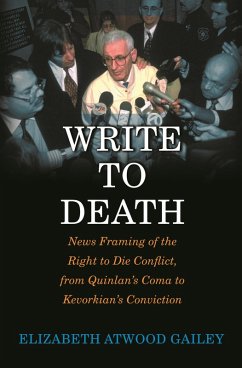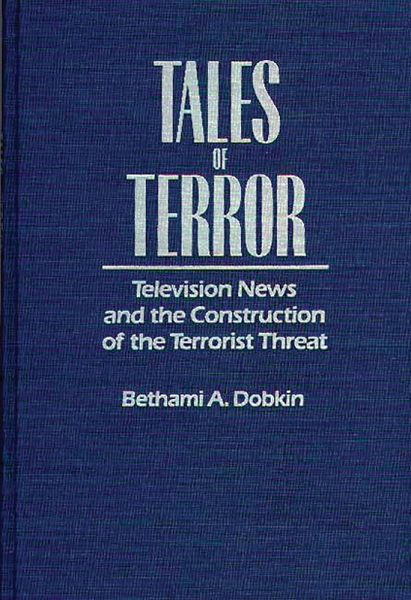
Tales of Terror (eBook, PDF)
Television News and the Construction of the Terrorist Threat
Versandkostenfrei!
Sofort per Download lieferbar
46,95 €
inkl. MwSt.
Weitere Ausgaben:

PAYBACK Punkte
23 °P sammeln!
Conventional research suggests that news coverage of terrorism is a tool of the terrorist to gain public support and recognition. Based on an analysis of more than 200 evening newscasts aired during the first six years of the Reagan administration, Tales of Terror offers a detailed account of the ways in which news media escalate public panic about terrorism and encourage support for specific U.S. policy objectives, rather than build sympathy for terrorists. Bethami Dobkin explores similarities between news media and government portrayals of terrorism, combining textual criticism with an inter...
Conventional research suggests that news coverage of terrorism is a tool of the terrorist to gain public support and recognition. Based on an analysis of more than 200 evening newscasts aired during the first six years of the Reagan administration, Tales of Terror offers a detailed account of the ways in which news media escalate public panic about terrorism and encourage support for specific U.S. policy objectives, rather than build sympathy for terrorists. Bethami Dobkin explores similarities between news media and government portrayals of terrorism, combining textual criticism with an interpretation of official U.S. policy statements, and argues that government depictions and news presentations of terrorism reproduce an ideology that supports military strength and intervention. Dobkin examines several specific features of news coverage: the dramatic format of television news and the political interests that this format serves; the narrative construction of enemies by television journalists and public officials and the political significance of the terrorist label; the use and significance of testimony, particularly that of people affected by crisis; the mutual exploitation of political crisis by both television news producers and public officials; the function of journalism in shaping the conduct of public diplomacy and public perceptions of foreign conflict; and the creation of consensus about the need for military responses to political violence. This revealing study will be of particular interest to scholars of communications and political science.







